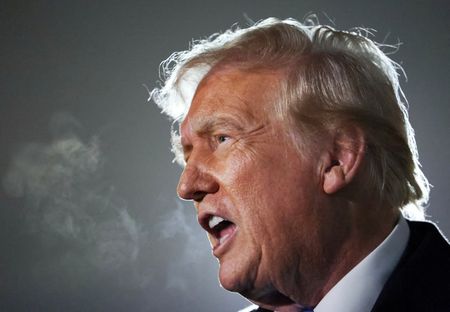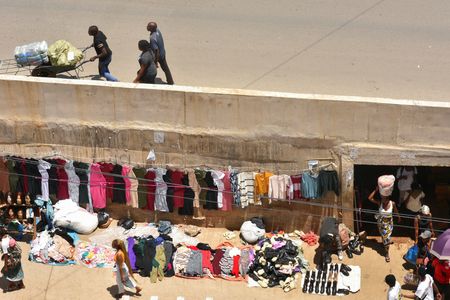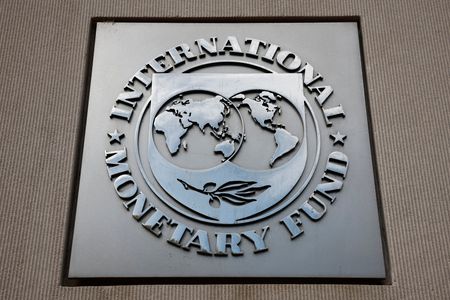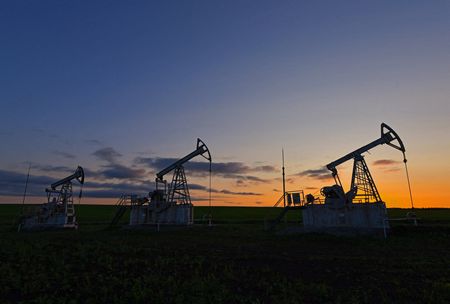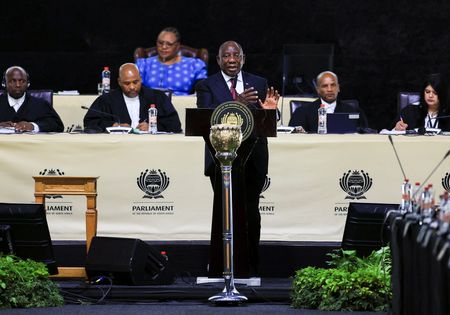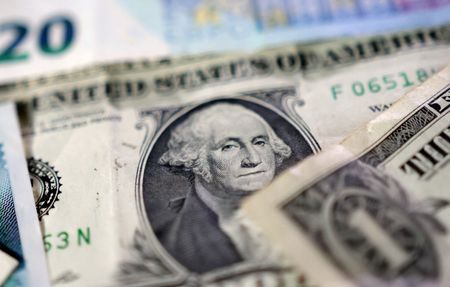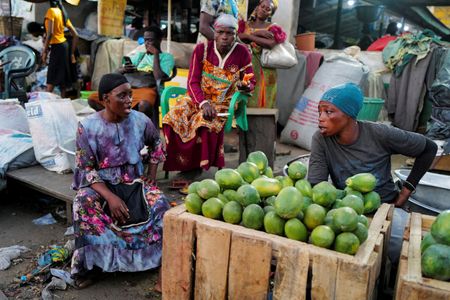By Tim Cocks
JOHANNESBURG (Reuters) – President Cyril Ramaphosa defended South Africa’s land policy on Monday after Donald Trump’s threat to cut off funding because of what he said were land confiscations.
Trump said the previous day, without citing evidence, that “South Africa is confiscating land” and “certain classes of people” were being treated “very badly”. He would cut funding until the matter was investigated, he said.
WHAT IS TRUMP TALKING ABOUT?
The U.S. president did not specify who was being “treated badly”, but the land reference suggests he’s referring to white landowners who still possess three quarters of South Africa’s freehold farmland.
This contrasts with 4% owned by Blacks, according to the latest 2017 land audit, who make up 80% of the population, compared with about 8% for whites.
Partly in an effort to redress this imbalance, Ramaphosa signed a law last month allowing the state to expropriate land “in the public interest”, in some cases without compensating the owner, despite objections from the main partner in his coalition government, the mostly white-led Democratic Alliance.
No land has yet been expropriated under the act.
HOW DID WE GET HERE?
South Africa has a history of colonial conquest and dispossession which pushed the Black majority into crowded urban townships and rural reserves.
The country’s British imperial masters gave most farmland to whites. In 1950, the Afrikaner National Party, representing descendants of Dutch settlers, passed a law taking 85% of territory for themselves and kicking 3.5 million Black people off their ancestral homelands.
In the 30 years that the African National Congress (ANC) has been in power, some land restitution has happened under a “willing buyer, willing seller” model, but critics have denounced it as painfully slow and accuse white landowners of hoarding.
WHAT IS THE EXPROPRIATION ACT AND WHY IS IT CONTROVERSIAL?
The law has been the subject of lengthy and often acrimonious debate for years. It repeals a past expropriation act that South Africa’s apartheid rulers had used to seize land off the Black majority.
The ANC’s most powerful rival in its increasingly fractious coalition, the DA, argues that land expropriation is unconstitutional, violates basic property rights and will deter badly-needed foreign investment.
However, the party put out a statement on Monday expressing concern over Trump’s threat and correcting a misconception that the act allows land to be seized arbitrarily.
After years of exhaustive parliamentary debate, the law is carefully worded. It forbids seizing land unless it can be demonstrated it is in the public interest. It also requires authorities to first try to reach an agreement with the owner.
WHAT CAN TRUMP DO TO SOUTH AFRICA?
The United States committed nearly $440 million in assistance to South Africa in 2023, according to the most recent U.S. government data.
Ramaphosa said U.S. funding accounted for 17% of South Africa’s HIV/AIDS programme but it was reliant on “no other significant funding” from the United States.
U.S. data backs that up, with $315 million going to HIV/Aids, and much smaller sums going to other health issues, farming, education, trade policy and energy.
A much bigger worry than aid is trade: a quarter of South Africa’s $15 billion exports to the U.S. get preferential tariffs under the African Growth and Opportunities Act (AGOA), according to a 2023 AGOA factsheet, while South Africa estimates AGOA makes up 2% of its total exports.
‘WHITE GENOCIDE’?
During his first administration, Trump said the U.S. would investigate large-scale killings of white farmers in South Africa and violent takeovers of land.
There is no evidence of such killings or takeovers of land, of the sort that did happen in Zimbabwe in 2000.
In 2023, Trump’s ally, South African-born Elon Musk accused the government of seeking a “genocide of white people.”
That notion, which circulates in far-right chat rooms, attempts to link land reform to murders of white farmers during robberies, saying the killings are acts of state-sponsored ethnic cleansing aiming to scare them off their land.
Of the roughly 20,000 murders committed in South Africa every year, around 50 of them are of white farmers.
Most of the victims are Black.
(Reporting by Tim Cocks; Editing by Ros Russell)

